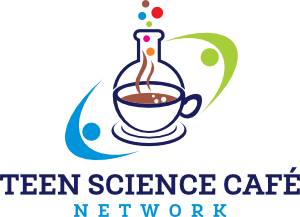Purposeful questioning can be used to mentor and guide both teen leaders and presenters. How you question can open up (or shut down) new avenues for creativity in your leadership and café program.
“The scientist is not a person who gives the right answers, he’s one who asks the right questions.” – Claude Lévi-Strauss
1. Skills for Asking Questions
Things to Consider:
Try to set up situations so that you can avoid telling teens what to do. Let them have the experience that inspires and motivates them.
Actively participate with the teen. This will model appropriate behavior. The teen can learn a lot about how to think critically and problem-solve by watching you and working with you.
It’s OK if you don’t know the answer!
Ask open-ended questions, rather than those that have a “yes” or “no” answer.
Ask questions that inspire the teen to thoughtfully analyze a situation and consider consequences – “What do you think will happen if you do this?”
Give the teen time to answer the question: ask the question, then wait. A while. Trust us: thoughtful answers take time.
When a teen tells you what they think, respond by repeating and paraphrasing what they have said without criticism.
Don’t give too much praise, or reject ideas. Telling a teen they are right or wrong can discourage them from generating additional ideas or pursuing deeper exploration.
Question Types and Examples
Opening Questions
Opening questions work great for teens that are just getting involved with an activity, or seem unsure of themselves. Opening questions provoke curiosity and invite involvement. They are completely free of the element of: “Guess what’s on my mind.”
What happens when you try this?
What does this remind you of?
Have you ever seen this before? Tell me about it.
Exploration Questions
For those that seem to be really interested, Exploration Questions can help focus attention and encourage active play, experimentation, discovery, and thoughtfulness.
Tell me what happened?
What did you notice?
What does it look like?
What is it made of?
What would happen if…..?
What difference did you notice?
What might you try instead?
What can you tell me about your experiment?
How did you do that?
What does this make you think of?
In what ways are these the same?
In what ways are these different?
What materials did you use?
What can you do instead?
What do you feel, see, hear, taste, and/or smell?
What are some different things you could try?
Making-Meaning Questions
Making-Meaning Questions can help solidify their experience into a true learning event. These questions help support reflection, learning, and understanding.
Why do you think that happened?
What evidence makes you think that?
What would happen if we changed . . . ?
What do you think this tells us about . . . ?
Do you have any idea how we could test this out?
What would you need to find out more?
2. Skills for Increasing Participation in a Teen Science Café
Your objective here is to:
Get teens to participate without calling on them directly (thus putting them on the spot);
Manage the talking time so each individual has a chance to share;
Help participants to clarify the meaning of their response;
Remain neutral so that participants can’t tell what your own personal opinion is; and
Establish a non-threatening climate for discussion.

